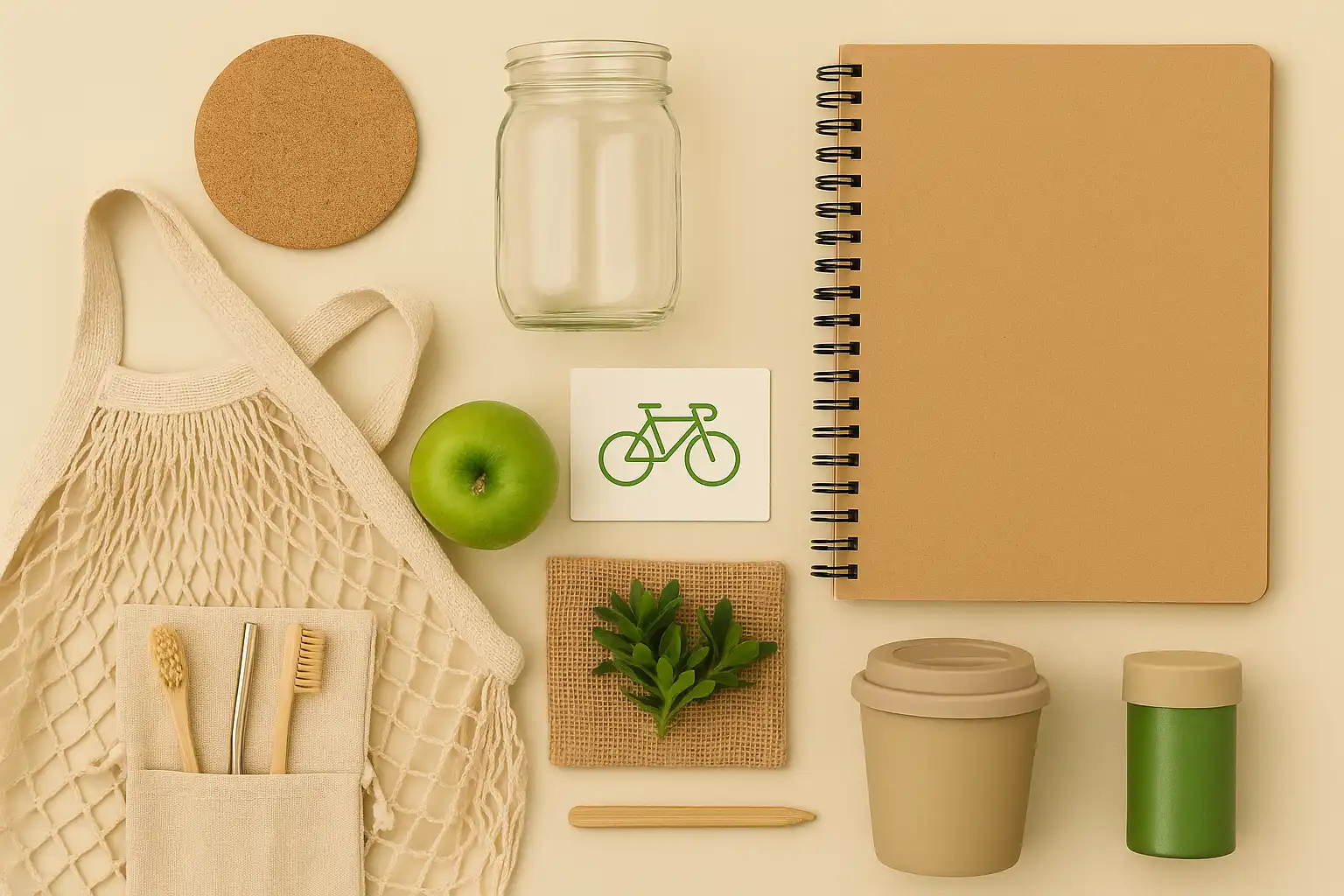Ignite Change: Embracing 30-Day Challenges for a More Sustainable Lifestyle

The journey towards a more sustainable way of living can feel like a marathon, requiring significant long-term commitment. While the ultimate goal is a fundamental shift in our habits and mindset, the prospect of such a large undertaking can sometimes feel daunting. This is where the power of 30-day challenges comes into play. These focused, time-bound commitments offer a manageable and effective way to experiment with new sustainable practices, build momentum, and witness tangible results in a relatively short timeframe.
A 30-day challenge provides a structured framework for incorporating eco-friendly habits into your daily routine. It allows you to concentrate your efforts, track your progress, and experience the rewards of your commitment, making the transition to a more sustainable lifestyle feel less overwhelming and more achievable. This exploration will delve into the concept of 30-day sustainability challenges, offering a range of insightful ideas and actionable tips to encourage, guide, and inspire you to embark on these transformative mini-journeys.
The Psychology of 30-Day Challenges: Building Lasting Habits##
The 30-day timeframe is often cited by behavioral scientists as a sufficient period to establish new habits. This duration allows us to move beyond the initial novelty and integrate a practice into our routine. The focused nature of a challenge provides several psychological benefits:
- Manageability: A 30-day commitment feels less intimidating than a lifelong overhaul, making it easier to overcome inertia and get started.
- Tangible Goal: The clear timeframe provides a defined endpoint, fostering a sense of accomplishment upon completion.
- Experimentation: It offers a low-stakes opportunity to try out new sustainable practices without feeling locked into a permanent change. If a particular challenge doesn't resonate, you can adjust or try something different next month.
- Building Momentum: Successfully completing a 30-day challenge builds confidence and motivates you to take on further sustainable actions.
- Increased Awareness: Focusing on a specific area for 30 days often increases your awareness of your habits and the environmental impact associated with them.
A Spectrum of 30-Day Sustainability Challenge Ideas
The possibilities for 30-day sustainability challenges are vast, catering to various interests and areas of environmental impact. Here are a diverse range of ideas to spark your inspiration:
Focusing on Waste Reduction:
- Zero Single-Use Plastics: Commit to refusing all single-use plastic items for 30 days. This includes bags, straws, cutlery, coffee cups, and food packaging.
- BYO (Bring Your Own) Challenge: Make it a habit to bring your own reusable bags, water bottle, coffee cup, and food containers wherever you go for 30 days.
- Conscious Composting: If you don't already, start composting your food scraps for 30 days. If you do, focus on expanding the range of items you compost.
- Low-Waste Grocery Shopping: For 30 days, make a conscious effort to buy groceries with minimal packaging, opting for bulk bins, farmers markets, and unpackaged produce.
- Repair and Mend: Instead of discarding damaged items, dedicate 30 days to repairing or mending them, whether it's clothing, electronics, or household goods.
Focusing on Sustainable Consumption
- No New Clothes: Challenge yourself to not buy any new clothing for 30 days, focusing on what you already own and exploring secondhand options if needed.
- Mindful Meatless Meals: Commit to eating vegetarian or vegan meals for a set number of days each week (e.g., 3-7 days) for 30 days.
- Support Local Challenge: For 30 days, make a conscious effort to buy as many locally sourced products as possible, from food to household goods.
- Digital Declutter and Reduce Consumption: For 30 days, reduce your digital consumption (limit social media, streaming) and reflect on how this impacts your desire for material goods.
- DIY Delight: Dedicate time each week for 30 days to making your own household cleaners, personal care products, or food items from scratch.
Focusing on Energy and Water Conservation
- Shorter Showers: Challenge yourself to limit your showers to a specific timeframe (e.g., 5 minutes) for 30 days.
- Unplug and Save: Make a daily habit of unplugging electronics when they're not in use for 30 days.
- Line Drying Only: For 30 days, commit to air-drying all your laundry instead of using the dryer (weather permitting).
- Smart Thermostat Challenge: Be more mindful of your thermostat settings for 30 days, adjusting them to conserve energy when you're away or asleep.
- Water-Wise Dishwashing: If you handwash dishes, focus on using less water for 30 days. If you use a dishwasher, ensure it's always fully loaded.
Beyond the Home
- Sustainable Commute: Challenge yourself to walk, bike, or use public transport for your commute (or a portion of it) for 30 days.
- Support Eco-Friendly Businesses: For 30 days, make a conscious effort to support businesses that prioritize sustainability in their practices.
- Nature Connection Challenge: Spend a certain amount of time outdoors each day for 30 days, fostering a deeper appreciation for the natural world.
- Learn and Advocate: Dedicate time each day for 30 days to learning more about environmental issues and engaging in small acts of advocacy (e.g., signing a petition, contacting a representative).
- Share Your Journey: Document your 30-day challenge on social media or with friends and family to inspire others.
Making Your 30-Day Challenge a Success
- Choose Wisely: Select a challenge that genuinely interests you and feels manageable within your current lifestyle.
- Set Clear Goals: Define specific and measurable goals for your 30-day commitment.
- Track Your Progress: Keep a journal or use a tracking app to monitor your efforts and see how far you've come.
- Prepare for Success: Take steps to make it easier to stick to your challenge (e.g., stock up on reusable items, plan your meatless meals).
- Be Kind to Yourself: There might be days when you slip up. Don't get discouraged; simply recommit and keep going.
- Reflect and Learn: At the end of the 30 days, take time to reflect on your experience. What did you learn? What changes will you continue?
Embracing 30-day challenges offers a dynamic and empowering way to integrate sustainable practices into your life. These focused commitments allow us to experiment, learn, and witness the tangible impact of our choices, paving the way for a more conscious and environmentally responsible future, one manageable month at a time.
Related Blogs

Breaking Free from the Urge: Cultivating Mindful Consumption to Conquer Impulse Purchases
Reduce unnecessary spending and clutter with shopping lists, the 24-hour rule, and minimalist budgeting.

Illuminate Responsibly: Choosing Cleaner Alternatives to Regular Candles
Opt for soy tealights, rechargeable LEDs, or beeswax pillars to avoid paraffin and plastic.

Curate Your Closet, Cultivate Clarity: Embracing a Minimalist Wardrobe for Mindful Living
Declutter your closet with seasonal rotation, capsule wardrobes, and regular donation cycles.

Unplug to Uplift: Where Digital Minimalism Nurtures Environmentalism
Insights on digital minimalism meets environmentalism in a sustainable way.

Unwrapping a Greener Future: Creative Alternatives to Traditional Gift Wrapping
Reduce single-use waste with cloth wraps, newspaper, and recycled kraft paper for gifts.

Slowing Down Delivery: Cultivating Eco-Friendly Shipping Habits
Reduce carbon emissions by choosing bundled, eco-shipping options, or click-and-collect.
Stay in the Loop
Get tips and insights tailored to your interests — no spam, just sustainability.